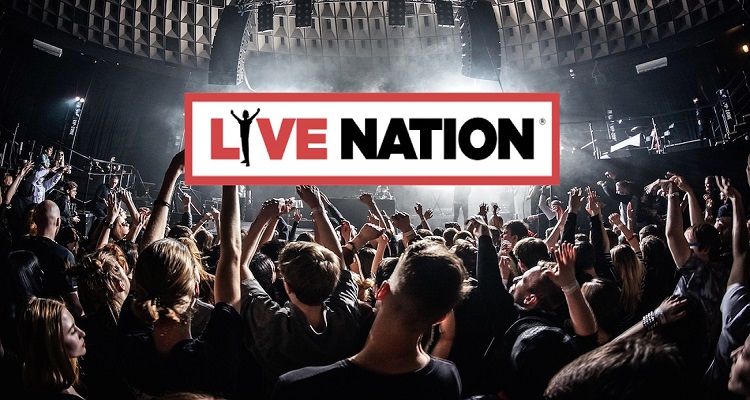Photo Credit: Live Nation
Back in April of 2020, disgruntled ticket customers filed a class-action lawsuit against Live Nation and its Ticketmaster subsidiary “to recover the damages they suffered from paying supracompetitive fees.” Now, a three-judge panel has affirmed a prior ruling that sent the legal battle to arbitration.
In their nearly three-year-old original complaint – one of several such suits that Live Nation and Ticketmaster are facing, of course – plaintiffs Olivia Van Iderstine and Mitch Oberstein took aim at the defendant companies’ alleged “monopoly power” and “anticompetitive” practices. (Another plaintiff, Gary Matty, subsequently joined the case.)
Said monopolistic power and anticompetitive practices stem from the 2010 Live Nation-Ticketmaster merger, according to the 72-page-long action, and the defendants allegedly possess a stranglehold on venues, impose exorbitant fees on consumers for primary as well as secondary passes, and otherwise utilize their market position to “stifle competition.”
“Using its promotion business as a loss leader in turn helps maintain Ticketmaster’s dominance,” the plaintiffs explained, “because venue operators must take into account the very real possibility that Live Nation Entertainment will not route tours through their venues if they do not select Ticketmaster as their primary ticketing service provider.”
(These issues came up last month during a congressional hearing on ticketing competition, and the Justice Department is currently conducting an antitrust investigation into Live Nation, a substantial portion of which belongs to Saudi Arabia.)
But as mentioned at the outset, a California appellate court has affirmed a district-court order to compel arbitration, indicating that the plaintiff customers had consented to a valid terms of use agreement (and arbitration clause) when shopping on Ticketmaster.
The appealing parties had argued that Ticketmaster’s terms of use were invalid because they failed to identify Live Nation as a party to the agreement. Additionally, it was said that Ticketmaster’s website hadn’t provided “constructive notice” to the allegedly shortchanged shoppers.
On the former front, however, Judge Danny J. Boggs penned: “California law does not require that corporate parties to a contract use their full legal names. California law requires only that it be possible for a reasonable user to identify the parties to the contract.”
Furthermore, the judge noted multiple “available avenues” and other factors “that would enable a reasonable user to identify Ticketmaster’s full legal name” from the terms of use, thereby clearing the “low bar” established by Golden State law.
“It is difficult to imagine who would be a party to the arbitration agreement if not, at the very least, the entity specifically listed as the addressee for the initiation of arbitration disputes,” the 78-year-old judge continued.
“Ticket Purchasers effectively ask this court to impose a requirement that parties to an arbitration agreement identify themselves in the contractual document by their full legal names,” Judge Boggs drove home. “However, they fail to produce any authority, mandatory or persuasive, demanding as much.”
Shifting to the constructive notice side, the court acknowledged that the Live Nation/Ticketmaster terms of use fail to constitute “pure clickwrap” (because users needn’t click a box to accept them) or “pure browsewrap” (“as they are not hidden in links located at the bottom of webpages”).
In any event, the terms, which “lie somewhere in between” the two descriptions, are “reasonably conspicuous to the average user,” the judge stated. That said, “this hybrid form of agreement is not without its risks and invites second-guessing,” per the opinion, which arrives after different courts found that Ticketmaster’s terms do in fact compel arbitration.
“Because the Ticketmaster and Live Nation websites provided reasonably conspicuous notice of the Terms to which Ticket Purchasers unambiguously manifested assent,” the legal document reads towards its end, “we hold that the district court did not err in determining that the Terms, including the arbitration provision, were valid and binding.”
Earlier this month, the White House pushed legislation that it said would curb Ticketmaster’s “huge service fees,” and an appellate court in late January affirmed that Live Nation wasn’t liable for a 2014 backstage shooting.

